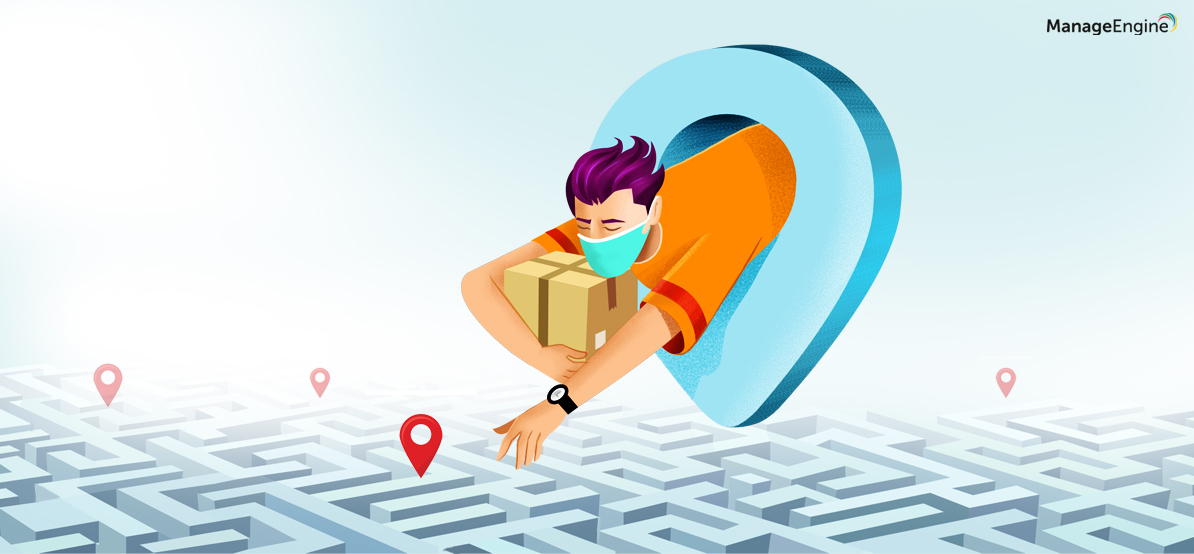Five worthy reads is a regular column on five noteworthy items we’ve discovered while researching trending and timeless topics. This week we explore the rising scope of location intelligence in improving the overall customer experience.

The pandemic has pushed businesses out of their comfort zones and boosted digitization. Organizations have started to rely more on evolving technology like AI, ML, automation, and business intelligence tools. Location intelligence (LI) is the latest feather in this cap, and it’s rapidly being adopted by businesses across the globe. As per a Gartner report, 30 percent of customer interactions will be influenced by location analysis by 2022, up from four percent in 2017.
LI is a form of business intelligence. It involves analyzing geospatial data to derive trends and actionable insights vital to framing better strategies for businesses. Geospatial data is gathered from IoT devices, GPS systems, mobile apps, and so on. The smart maps showing COVID-19 hotspots and their associated data is a recent, relatable LI use case.
Many prominent industries like banking, insurance, healthcare, retail, logistics, hospitality, and the government and public sector are leveraging LI to achieve strategic goals. A strong customer experience strategy can be formed only by incorporating the location component, so LI is gaining traction.
LI helps retailers map the customer experience at different store locations, track the high-demand products in each store, and efficiently plan stock delivery.
Insurance companies can mitigate risks by analyzing data like region-specific weather conditions and crime rates related to property or vehicles and develop better policies.
Food delivery services can identify the shortest routes to reduce delivery time using LI’s capability to read traffic patterns. They can also decide on marketing content as well as offers and discounts based on regional data like festivals or weather.
LI will also help government organizations, particularly health departments, create policies around vaccine distribution and distress relief initiatives based on the source of an outbreak, the hospital beds available, climate conditions, the air quality index, demographic factors, and other metrics that vary by location.
These are just a few use cases of LI; the scope of LI in each of these industries is more extensive. Here are five interesting reads on how businesses are improving the customer experience by implementing LI services.
1. Unlocking Value with Location Intelligence
Companies are moving towards a people-centric approach and focusing on providing more personalized customer experiences. Deriving data-driven insights from customer demographics using mapping and geospatial data is changing the way businesses operate. So BCG has conducted this detailed study to look into the extent of businesses’ dependency on LI and to analyze the LI market.
2. Importance of Location Intelligence in the Post-Pandemic World
Setting up a business in the right location is one of the key factors for its success. Ninety percent of data related to location still remains unnoticed by businesses, with this information stored in sources such as apps, B2C companies, and satellites. LI can map such data and generate information that helps an organization make strategic decisions to improve the customer experience. At present, LI is helping multiple segments like the government; retail companies, particularly those in e-commerce; and the financial services industry identify better opportunities.
3. Why is location intelligence becoming a popular asset for companies?
By combining AI and LI, complex models and algorithms can be generated to help businesses expand their serviceability into diverse streams. Applications of LI range from geolocation services and competitor monitoring to localized predictive analytics, lead generation, geomarketing, gap analysis, expansion maps, and propensity-to-purchase models. Government bodies also use LI in environmental and land management, urban planning, census updates, and other projects.
4. How Can Location Intelligence Revolutionize Modern Businesses?
Over 95 percent of businesses feel that LI plays a crucial role at this point in time. LI is being used in multiple industry verticals to make the best use of geographic information and satellite data. Read more about the multiple uses of LI in major industries.
5. Leveraging location intelligence in the retail industry
The e-commerce industry has seen immense growth recently and might overtake the retail sector someday. Retailers are now trying to unify their online and offline business channels to create a sustainable business model. They have started incorporating LI along with other modern technologies to comprehend and analyze buyer behavior. This will help them create better customer personas and improve their overall marketing and sales strategies.
Overall dependency on LI is rising steadily. By incorporating location analytics with other data points, LI enables enhanced, multidimensional analysis. Adopting LI is the path forward for businesses to unleash maximum insights from their data sources and create better customer experiences.
